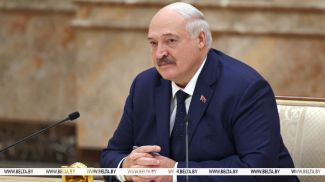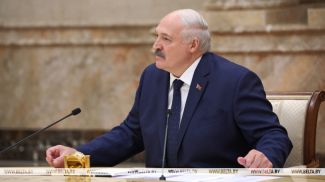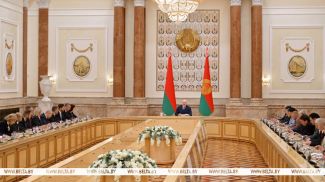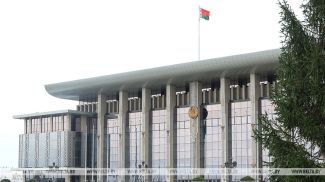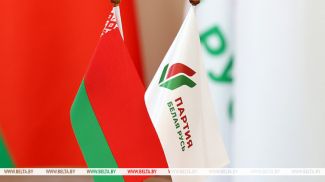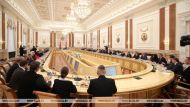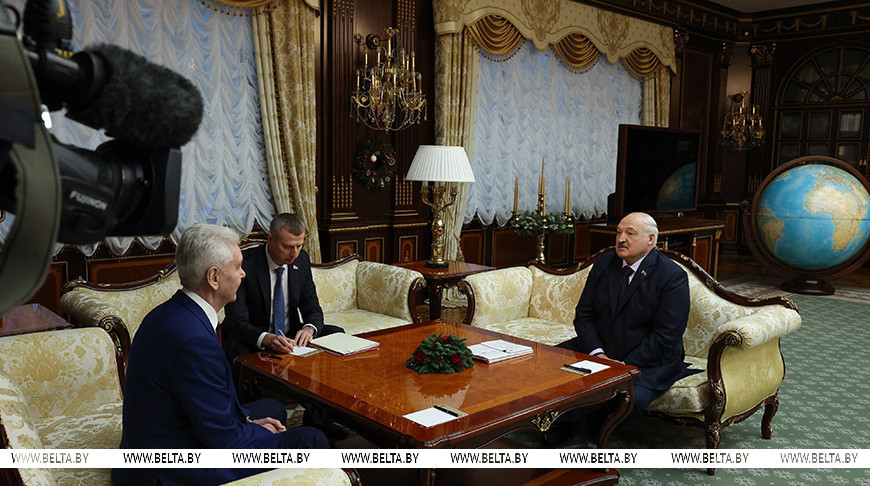
MINSK, 23 December (BelTA) - Trade between Belarus and Moscow is on track towards $7 billion this year, Belarusian President Aleksandr Lukashenko said as he met with Moscow Mayor Sergey Sobyanin in Minsk on 23 December, BelTA learned.
Head of the Belarus President Administration Dmitry Krutoi also took part in the meeting. Aleksandr Lukashenko explained that Mr Krutoi is still responsible for cooperation with Russia (in the past, Dmitri Krutoi served as Ambassador to Russia) and Moscow in particular.
“He was intimately familiar with the cooperation issues at a time of being an ambassador. I thought, why should we change things and look for someone new. He has a great respect for Russia and follows everything that happens there. He is critical of some issues, but he loves Moscow for what it has achieved in recent years. This is not for flattery. I am often jealous too. You do ambitious things. We could do them in Minsk, but we don't have such opportunities (we indeed lack such opportunities). But we learn a lot, we look up to you and repeat many things,” the president said.
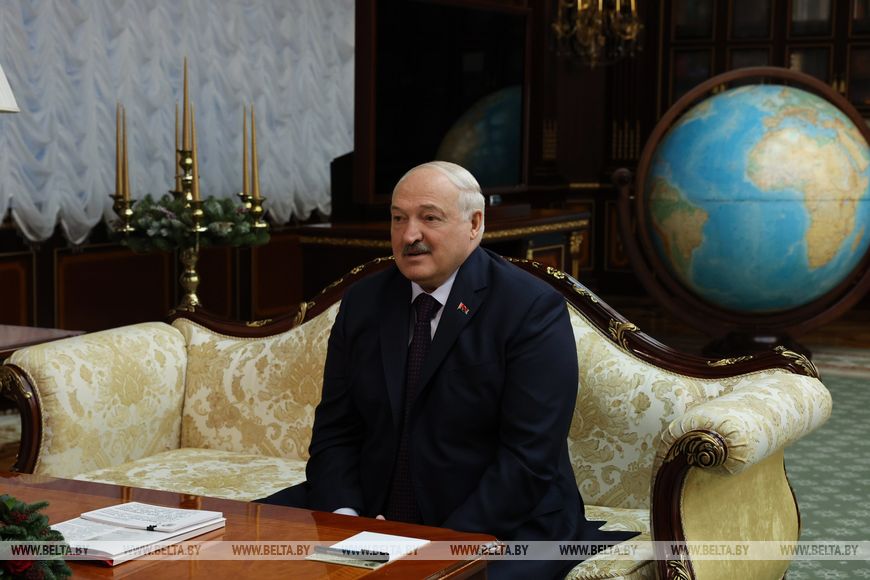
Moscow is one of the main partners of Belarus among the subjects of the Russian Federation. Last year, according to the Belarusian government, the mutual trade amounted to more than $6 billion. This year, this level was already reached in January-October.
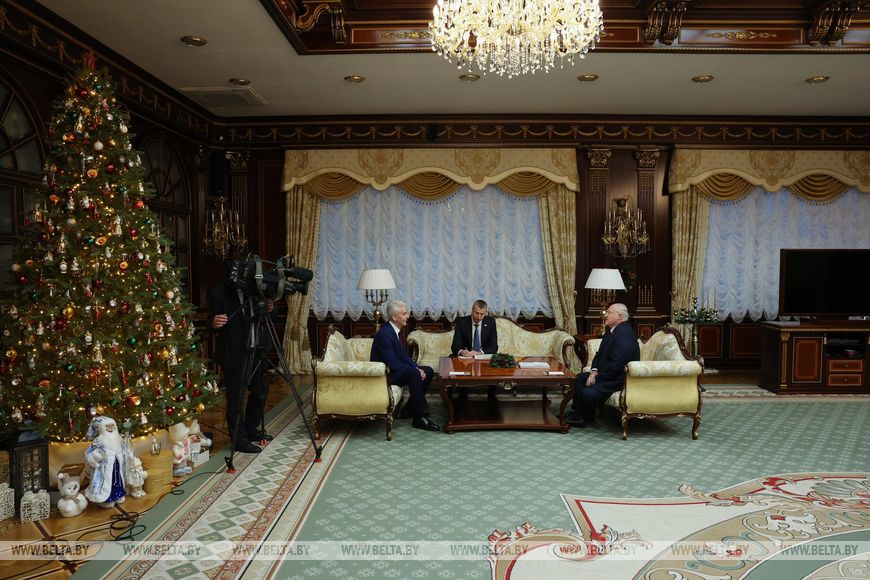
Aleksandr Lukashenko also thanked the leadership of Moscow for assistance in the reconstruction of the Belarusian pavilion at VDNKh. “As I was told the demand for the products we exhibit there is huge. For food products, clothes. They have a good price/quality ratio,” drew attention of the head of state.
The president also noted the development of humanitarian cooperation. “It is important for us. People know Moscow very well, they love Moscow, they learn a lot in Moscow, especially in the field of culture. This is good for our relations,” Aleksandr Lukashenko is convinced.
Sergey Sobyanin, in turn, emphasized that such dynamics in trade and economic relations between Belarus and Russia is due to the close relations between the two presidents.
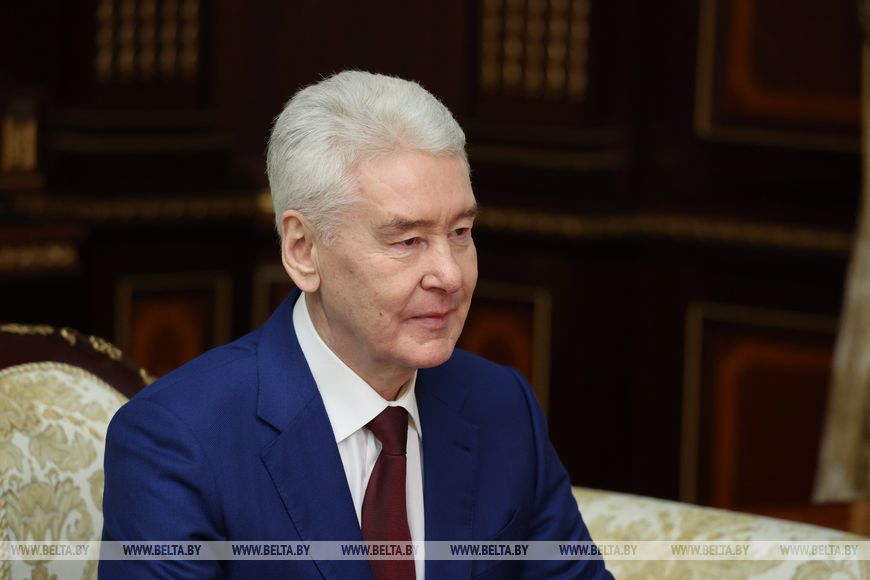
“Moscow is the main partner for Belarus. Over the past two years, trade has increased by almost 30%, and even more for a number of items. For example, the trade in construction materials surged by almost 60%. Even visually there are hundreds, if not thousands of utility vehicles made in Belarus (tractors, cars, cleaning equipment) in the streets of Moscow. Belarus is the number one partner in terms of food supplies. You can buy Belarusian products in almost all stores in Moscow, food markets and fairs. Muscovites love them: they are very high quality, organic,” the mayor of Moscow noted. According to him, there are good dynamics in other areas as well: electronics, machine building, medicine, pharmaceuticals.
“As for tourist flows, this year along they have increased by almost 50%. There was some slowdown, apparently related to the covid, the beginning of the special operation, but now they are recovering,” Sergey Sobyanin noted.
He added that Muscovites like to come to Belarus and, in particular, to Minsk. It is one of the most popular destinations for them. Belarusians love to visit Russia and its capital.
Head of the Belarus President Administration Dmitry Krutoi also took part in the meeting. Aleksandr Lukashenko explained that Mr Krutoi is still responsible for cooperation with Russia (in the past, Dmitri Krutoi served as Ambassador to Russia) and Moscow in particular.
“He was intimately familiar with the cooperation issues at a time of being an ambassador. I thought, why should we change things and look for someone new. He has a great respect for Russia and follows everything that happens there. He is critical of some issues, but he loves Moscow for what it has achieved in recent years. This is not for flattery. I am often jealous too. You do ambitious things. We could do them in Minsk, but we don't have such opportunities (we indeed lack such opportunities). But we learn a lot, we look up to you and repeat many things,” the president said.

The head of state cited the housing renovation program in Moscow as an example. “You had a hard time starting the renovation program. But we are going this way point by point, reinvigorating Minsk, putting it in order. Where necessary, we demolish buildings, improve people's lives,” Aleksandr Lukashenko noted.
The two capitals pay special attention to urban improvement. “There is a lot to learn,” the Belarusian leader remarked.
Moscow is one of the main partners of Belarus among the subjects of the Russian Federation. Last year, according to the Belarusian government, the mutual trade amounted to more than $6 billion. This year, this level was already reached in January-October.

“This year we are approaching $7 billion. Frankly speaking, it's hard for me to believe that we can reach such a level. It's very solid,” the president emphasized.
Aleksandr Lukashenko also thanked the leadership of Moscow for assistance in the reconstruction of the Belarusian pavilion at VDNKh. “As I was told the demand for the products we exhibit there is huge. For food products, clothes. They have a good price/quality ratio,” drew attention of the head of state.
The president also noted the development of humanitarian cooperation. “It is important for us. People know Moscow very well, they love Moscow, they learn a lot in Moscow, especially in the field of culture. This is good for our relations,” Aleksandr Lukashenko is convinced.
Sergey Sobyanin, in turn, emphasized that such dynamics in trade and economic relations between Belarus and Russia is due to the close relations between the two presidents.

“Moscow is the main partner for Belarus. Over the past two years, trade has increased by almost 30%, and even more for a number of items. For example, the trade in construction materials surged by almost 60%. Even visually there are hundreds, if not thousands of utility vehicles made in Belarus (tractors, cars, cleaning equipment) in the streets of Moscow. Belarus is the number one partner in terms of food supplies. You can buy Belarusian products in almost all stores in Moscow, food markets and fairs. Muscovites love them: they are very high quality, organic,” the mayor of Moscow noted. According to him, there are good dynamics in other areas as well: electronics, machine building, medicine, pharmaceuticals.
“As for tourist flows, this year along they have increased by almost 50%. There was some slowdown, apparently related to the covid, the beginning of the special operation, but now they are recovering,” Sergey Sobyanin noted.
He added that Muscovites like to come to Belarus and, in particular, to Minsk. It is one of the most popular destinations for them. Belarusians love to visit Russia and its capital.





